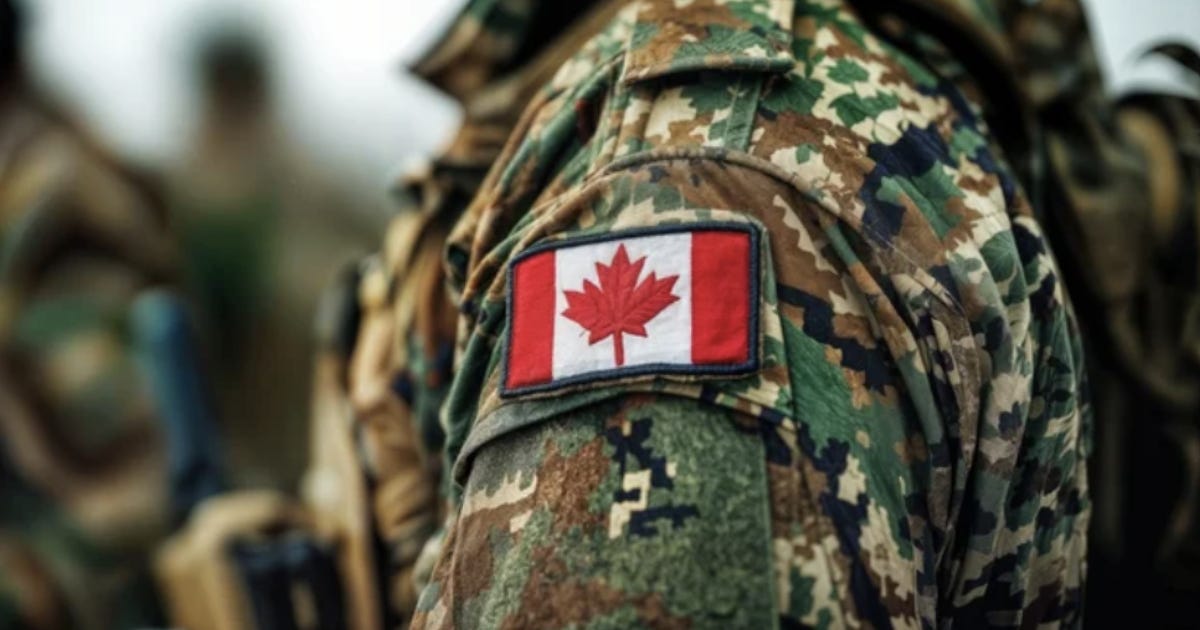CAF training in Latvia “undermined” by military funding neglect: top general
A top Canadian Armed Forces general told MPs Canada's military readiness during NATO training in Latvia was “undermined” by years of underfunding from Ottawa.
A top Canadian Armed Forces general told MPs Canada's military readiness during NATO training in Latvia was “undermined” by years of underfunding from Ottawa.
During a Commons defence committee on Thursday, the Conservative national defence critic James Bezan questioned a top CAF general on why more than 30 per cent of Canada’s contingent in Latvia was incapable of combat. The general blamed chronic underfunding.
“The recent budget commitment has enabled major spare parts orders delivery, and we have undertaken that at speed. That said, the lack of past resourcing eroded a couple of things,” Maj.-Gen. Robert Ritchie, the CAF’s director of staff for the Strategic Joint Staff, said during the committee.
Ritchie said federal government under-resourcing had “eroded” Canada’s reserve stock of spare parts for fleets and equipment, including vehicles.
“Some of our long-standing suppliers pivoted to other contracts, given that we'd had periods of time without contract,” he said. “Time is required for industry to ramp up to the need. In the specific case that was mentioned, tanks were at issue.”
Ritchie said tanks are an "aging platform" and the CAF's current variant is "facing obsolescence."
“It is not unique to Canada. The allies that are also using the Leopard tank have encountered the same shortfalls, and the war in Ukraine has intensified global demand against fixed production,” Ritchie added.
According to the general, he could not say how many of the 17 Leopard tanks were "not up," but he noted the Canadian tank fleet was "under duress." He stressed the importance of balancing domestic and international readiness.
Ritchie estimated that Canada has around 2,200 troops currently deployed in Latvia as part of Operation Reassurance, a joint training exercise involving 13 allied nations. The training has two purposes: enhancing the combat capabilities of NATO allies and deterring invasion by Russia and Belarus.
Despite lagging behind Canada’s commitment to NATO to spend two per cent of its GDP on defence, Prime Minister Mark Carney has since vowed to hit NATO’s new target for members to spend five per cent of their GDP on defence by 2035. However, 1.5 per cent of the spending can be for industry and infrastructure rather than equipment.
Despite historic Canadian shortcomings in Latvia, including 2023 reports saying CAF members had to purchase their own equipment due to a lack of funds for the exercises, Ritchie said Canada is “sustaining its contribution” in the region and is considering potential increases to the operation there.
Eric Laporte, executive director of defence and security relations with Global Affairs Canada, said Operation Reassurance was partly due to a security and partnership deal signed with the European Union.
“We have a commitment to Latvia, which is recognized amongst European allies as sort of a really, really well done deployment, one that is very multinational and is able to bring in more allies than other similar deployments,” Laporte said in the committee. “And we're also recognized as they're very, sort of strong supporters of Ukraine, including in the training sphere, but also in the capacity development.”




ROYAL DISCRACE TO ALL CANADA,S ARMY 17 TANKS and probly 1/3 rd are in the shop getting repared and thother 1/3 are parts for the ones being reparied our army dosent even have enoth to sucre 1 side of a bridge But we got tampons to throw insteed of grandes
Canada needs to withdraw officially from NATO. We do not and should not be involved militarily or financially in Europe’s WW3. The EU and the US started the current Russia / Ukraine war. The EU and the US will lose this war due to their own incompetence and greed. This is a war over mineral and financial wealth, Not Freedom. Civilians will be suffer the most for decades.
Honour the 2014 Minsk Agreement or suffer the consequences.